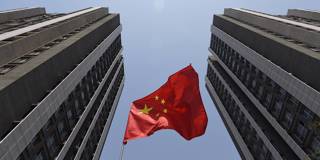American policies aimed at stemming China's economic and technological rise could mean escalating strategic costs for the US. But they will not have a lasting impact on the Chinese economy, let alone stop China’s economic rise.
SHANGHAI – In terms of geopolitical impact, nothing could be more important than the United States’ shift from strategic cooperation to strategic competition with China. This change has darkened many observers’ views of China’s economic prospects, as indicated by a Bruegel report released late last year. The assumption, it seems, is that China has no choice but to retreat from its successful development path and embark on a less prosperous path toward self-reliance, with the state exercising complete control over the economy to hedge against geopolitical shocks. But China’s efforts to bolster its self-sufficiency in some areas are a reasonable response to external pressures – and they hardly spell doom for its economic model or prospects.
In recent years, the US has ramped up its effort to “contain” China’s rise. Beyond employing tariffs and non-tariff barriers on imports from China, it has been limiting Chinese investment, such as by blocking Chinese companies from acquiring firms in some high-tech sectors in the US. It has also continued to add Chinese firms to its so-called Entity List, thereby restricting their access to US-controlled critical technologies like semiconductors, barred US capital from entering some of China’s strategic industries, and forced Chinese companies off US stock exchanges.
As my co-author, Shuo Shi, and I show in a 2020 paper, these policies could only carry escalating strategic costs for the US. And, contrary to popular belief, their lasting impact on the Chinese economy could be very limited, let alone enough to stop China’s economic rise in its tracks.

SHANGHAI – In terms of geopolitical impact, nothing could be more important than the United States’ shift from strategic cooperation to strategic competition with China. This change has darkened many observers’ views of China’s economic prospects, as indicated by a Bruegel report released late last year. The assumption, it seems, is that China has no choice but to retreat from its successful development path and embark on a less prosperous path toward self-reliance, with the state exercising complete control over the economy to hedge against geopolitical shocks. But China’s efforts to bolster its self-sufficiency in some areas are a reasonable response to external pressures – and they hardly spell doom for its economic model or prospects.
In recent years, the US has ramped up its effort to “contain” China’s rise. Beyond employing tariffs and non-tariff barriers on imports from China, it has been limiting Chinese investment, such as by blocking Chinese companies from acquiring firms in some high-tech sectors in the US. It has also continued to add Chinese firms to its so-called Entity List, thereby restricting their access to US-controlled critical technologies like semiconductors, barred US capital from entering some of China’s strategic industries, and forced Chinese companies off US stock exchanges.
As my co-author, Shuo Shi, and I show in a 2020 paper, these policies could only carry escalating strategic costs for the US. And, contrary to popular belief, their lasting impact on the Chinese economy could be very limited, let alone enough to stop China’s economic rise in its tracks.